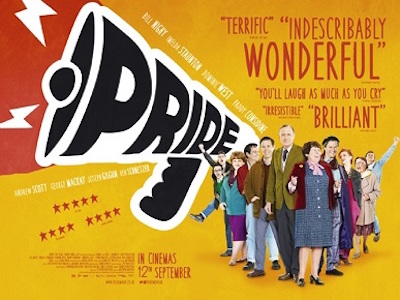Dante Morelli
I will admit that I did not get much accomplished over the winter break. Sweatpants, a mid-afternoon beer and video streaming from my favorite media outlets were far more persuasive than my extensive to-do list. One of those lazy afternoons crystallized my role as a unionist and gay man as I watched the movie Pride (2014). The movie brought me nearly to tears not because of the incredible storyline but because it shows the power of courage and the collaboration of the most unlikely groups of people. Based on a true story, this movie illustrates the lived experiences of lesbians and gays and striking miners in the United Kingdom in the early 1980s. While fighting for their rights and lives, a small group of lesbians and gays decide to help out the striking British coal miners who were fighting for their own rights and survival. The two groups, which could not be any farther apart, came together for one of the most courageous displays of solidarity. In London a group who called themselves “Gays and Lesbians Support the Miners” stood on the streets with buckets to collect money for those walking the picket line. The money, collected over a long period of time, was delivered to the National Union of Mineworkers which did not originally welcome the group. The miners consisted of men deeply proud of their toughness and masculinity, and here came a group lesbians and gays from London that was distinctly different from anyone they knew. It was not a match made on the picket line. In fact some of the miners detested their presence and demeanor but over time they found common ground to learn the power of organizing. Such a scene is captured here with a performance of "Bread and Roses" as one of the most moving displays of solidarity I have seen. It was evident that both groups faced many threats. At the time many gay men were living in fear of HIV/AIDS as they buried their friends who died of the disease. On the other side the miners were trying to hold onto their livelihood and their families by trying to provide food and pay the mortgage. Their narratives, while worlds apart, share the obvious theme of pride: pride in being gay, pride in being a unionist and pride in coming together in solidarity. The closing of the film illustrates this magical power with a performance of “There is Power in the Union” by Billy Bragg. The major take away of this film is that the most dire of circumstances can bring vastly different groups of people together. As one of the miners stated, “To find out that you had a friend, that you never knew existed, well that’s the best feeling in the world. So thank you.” |
